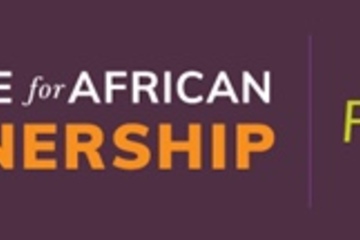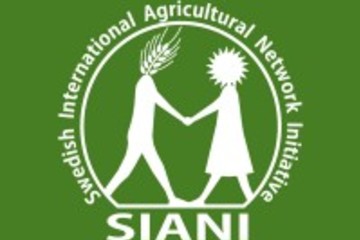Feed
-
OpportunityThe Seventh African Higher Education Week & RUFORUM Triennial Conference 2021The Seventh Africa Higher Education and RUFORUM Triennial Conference is set under the theme “Operationalising Higher Education for Innovation, Industrialisation, Inclusion and Sustainable Economic Development in Africa: A call for action” that responds to the urgent needs for the African governments, development partners, private sector and citizenry to take actions to invest in higher education. This Triennial conference is convened with the following objectives: Catalyse investment in Higher Education for human capital development in Africa Promote international linkages and partnerships for excellence in Higher Education Strengthen collaboration and mutual learning to spur innovation and industrialisation for economic transformation in Africa Promote youth employment and skills acquisition for development Strengthen University-Private sector business linkages The First RUFORUM Triennial Conference, the 16th Annual General Meeting and 7th African Higher Education Week will be held in the Republic of Benin at Centre International de Conférences et Palais des Congres de Cotonou, Benin from 6th-10th December 2021. The five-day conference will bring together policy makers including Ministers and Technical Experts, Higher Education Leaders in Africa, development partners, private sector leaders, researchers, innovators, students, and farmer organisations, among others. Approximately 1000 delegates are expected from across the world.By: Raquel AcostaMonday, Oct 11, 2021EDUCATION
-
OpportunityPublic Dialogue “Innovating Financing for Gender Equity and Implementing SDG #5 in Africa”AAP is excited to be hosting our next Public Dialogue “Innovating Financing for Gender Equity and Implementing SDG #5 in Africa” on Wednesday, October 27th at 9:00am-10:30 EDT. This dialogue session will be co-hosted by our affiliates at the University of Nigeria, Nsukka and those at the Michigan State University Center for Gender in Global Context. This session will examine innovative financial strategies for African universities to engage across all sectors and the impact these engagements are having on the transformation of gender equity and the implementation of sustainable development goal #5 (SDG). AAP recognizes that universities are now seeing themselves as catalysts for positive change in their communities and beyond, and is proud to be a part of this progress. To learn more: https://aap.isp.msu.edu/engage/aap-public-dialogue-series/fall-2021-public-dialogue-series/ To register: https://msu.zoom.us/webinar/register/8916334617675/WN_noPMv7TISH6MbCUQi07K6gBy: Raquel AcostaWednesday, Oct 6, 2021CULTURE AND SOCIETY

-
OpportunityCall for Thought Pieces Regarding Race and Ethnicity in Africa and the DiasporaAAP is issuing a call for thought pieces from anywhere in the world that are short, critical reflections of issues around race and ethnicity in higher education institutions as well as other key stakeholder organizations in Africa and the African Diaspora. The first deadline for thought piece summary (up to 500 words) is Oct. 30, 2021. Summaries must include title, text, author’s name and affiliation. For the full call for contributions and submission details, visit the link below. https://aap.isp.msu.edu/engage/aap-perspectives/By: Raquel AcostaFriday, Oct 1, 2021CULTURE AND SOCIETY+1

-
OpportunityCFA: Endangered Archives Programme Call for Applications is OpenThe Endangered Archives Programme is now accepting preliminary applications for the next annual funding round – the deadline for submission of preliminary applications is Monday 15 November 2021 at 12 noon GMT. Full details of the application procedures and documentation are available on the EAP website (https://eap.bl.uk/applicants). The Programme has funded over 430 projects in 90 countries and has helped preserve manuscripts, rare printed books, newspapers and periodicals, audio and audio-visual materials, photographs and artwork. The programme aims to digitise archives at risk of loss or decay and, where appropriate, to relocate the material to a safe local archival home. The digital copies are deposited with the local archival partners, and are all available for researchers to access freely through the British Library website. This year, we are accepting applications through our online portal between 1st and 15th November. However, in the meantime, we are providing Word and PDF documents for applicants to perfect their preliminary applications before the online submission. If you know of an archive in a region of the world were resources are limited, we really hope you will apply. If you have any questions regarding the conditions of award or the application process, consult our website (https://eap.bl.uk) or contact them at endangeredarchives@bl.ukBy: Raquel AcostaFriday, Oct 1, 2021EDUCATION
No Preview Available -
OpportunityAgri4D 2021 conference "Food Systems for New Realities"The Agri4D 2021 conference "Food Systems for New Realities" will take place at SLU (virtually) on 28-30 September. The Agri4D conference has been Organised by SLU Global at the Swedish University of Agricultural Sciences (SLU) and the Swedish International Agriculture Network Initiative (SIANI), with support from the Swedish International Development Cooperation Agency (Sida). Agri4D will bring together researchers, policy makers and practitioners to engage actively with the challenges of food systems with a focus on low-income contexts in a globalised world. The conference aims to be a platform to take stock of the current knowledge frontier, connect science to policymaking and practice, and spark new collaborations. For more information please visit: https://www.slu.se/en/collaboration/international/slu-global/agri4d-conference/. To register: Agri4D - Agricultural Research for Development Conference 2021 (akademikonferens.se)By: Raquel AcostaThursday, Sep 23, 2021AGRI-FOOD SYSTEMS

-
OpportunityBiodiversity Media Grants 2021Many of the threats currently facing global biodiversity have been exacerbated during the Covid-19 pandemic. Funding for critical conservation and ecotourism projects has been redirected or lost, economic growth has been prioritized over protecting wild spaces, and media coverage of the outbreak has dwarfed reporting on conservation. Indeed, the biodiversity crisis is one that impacts all of humanity and has not received the media coverage that it deserves. Media organizations and reporters have an important part to play in raising public awareness of biodiversity and conservation issues, and highlighting potential solutions to these problems. As a part of the Earth Journalism Network’s Biodiversity Media Initiative project, we are pleased to announce a second round of grant opportunities for journalist networks, media organizations, civil society organizations or academic institutions that are working to improve media coverage of biodiversity and conservation issues in countries where information is most under threat and most urgently needed. The Biodiversity Media Grants will support projects that: Build the capacity of journalism networks and media organizations to report on biodiversity and conservation issues Carry out biodiversity and/or conservation training activities for journalists Build internal capacity Organize local networks around these issues We are especially interested in projects that focus on conservation in biodiversity-rich regions of the world, such as the Amazon, Central Africa and Southeast Asia. For more information on the funding opportunity or to apply, visit the Earth Journalism Network websiteBy: Derek TobiasThursday, Sep 23, 2021WATER, ENERGY, AND THE ENVIRONMENT

-
Article2021 Africa Agriculture Status ReportAAP would like to highlight MSU Assistant Professor and Coordinator of the AAP/GYAN Youth Transformation Platform Kwame Yeboah’s recent collaboration with colleagues from @Making Cents International and the @Bureau of Integrated Rural Development at the Kwame Nkrumah University of Science and Technology, Ghana, to author Chapter 8 of the report: "Capturing the Synergies Between Youth Livelihoods and Resilient Agri-food Systems". During this meeting, Kwame Yeboah and AAP partners discussed many issues facing agri-food system development in Africa. Some of these topics included: Building sustained and resilient agri-food systems in Africa. The impacts of youth livelihoods in Africa that are intricately intertwined with the performance of the agri-food systems. How to foster youth engagement. Address policies that facilitate youth access to productive resources. Harnessing youth potential for resilient agri-food systems. AAP recognizes the significance of the Africa Agricultural Status Report and continues to share our support for Assistant Professor Kwame Yeboah’s work on these vital topics.By: Raquel AcostaThursday, Sep 23, 2021AGRI-FOOD SYSTEMS


Leave a comment